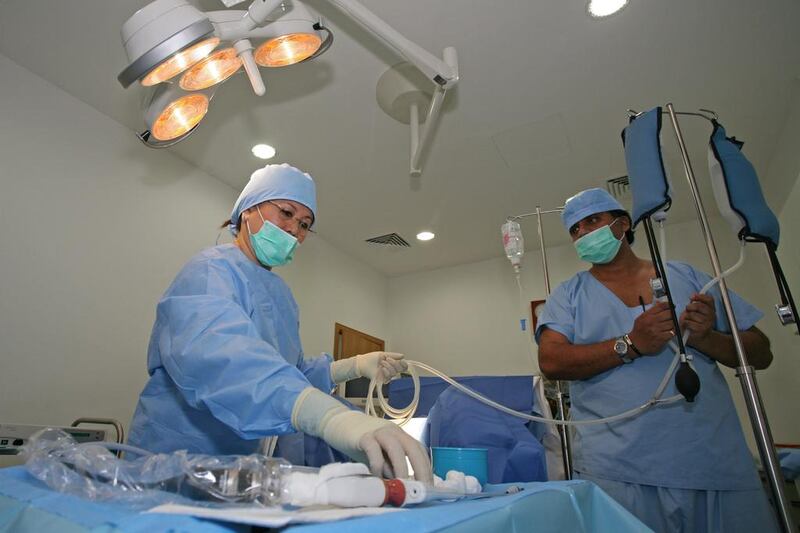DUBAI // Fertility treatment is the most popular procedure for medical tourists in Dubai.
Childless couples topped the list of people who visit the emirate for health care, according to a study by Dubai Healthcare City.
“There has definitely been an increase in IVF treatment,” said Dr Fatma Alsharaf, the free zone’s resident gynaecologist and head of medical tourism.
“The reasons medical tourists visit DHCC facilities for infertility procedures vary from specialised infertility procedures to geographical proximity.”
The study surveyed medical tourists from the GCC, the wider Arab world, eastern and western Europe and Asia in the first half of this year.
Legal red tape was another issue leading to increased fertility tourism because obtaining treatment in some of the patients’ home countries could be a problem, said Dr Alsharaf.
“Another important reason that could be fuelling the demand is that some European and Asian countries have policies that restrict the number of fertilised and implanted embryos,” she said.
“The demand for infertility treatment in the UAE has increased over the past few years because of medical causes, such as sperm problems in men and polycystic ovary syndrome in women,” said Dr Alsharaf.
Lifestyle factors, such as diet, obesity and stress, were other areas that could be contributing to a rising demand for fertility treatment.
The survey found Dubai bucked the global trend on the most common procedures people undergo on medical tourism trips. Cosmetic surgery, dentistry, orthopaedic and heart surgery are the most common medical tourism treatments worldwide.
In Dubai, however, infertility treatment topped the list, followed by cosmetic treatment and dental care.
The survey also asked physicians in Dubai Healthcare City for their views, observations and expectations of medical tourism in the emirate.
It found that doctors believed the high level of care and quality of medical professionals, together with the wide scope of treatment on offer, was what attracted medical tourists.
The majority of DHCC centres attract medical tourists through websites and online marketing, including social media, word of mouth and medical tourism agencies, the survey found.
“Hearing from our partners, who are in regular contact with medical tourists, on their views and the feedback they receive is essential to helping us improve what we offer,” said Marwan Abedin, the DHCC chief executive.
“As a strategic priority for DHCC, we are committed to increasing the flow of medical tourists visiting Dubai.
“We can achieve this with regular feedback and cooperation among our partner clinics and hospitals as well as medical tourism facilitators.”
The Dubai Health Authority aims to attract 500,000 medical tourists a year by 2020 in an ambitious strategy that will include building 22 new hospitals and the employment of more than 3,800 private-sector healthcare staff in the next few years.
The authority announced this year that it wanted the emirate to be on a par with such medical tourism destinations as the United States, Singapore, Thailand and India.
To do so, it had drawn up a two-part strategy, the first to be delivered by 2016 and the second by 2020.
In 2012, 107,000 medical tourists visited the emirate, generating Dh652 million. By 2016, the authority expects that number to increase to 170,000, with revenues of about Dh1.1billion.
jbell@thenational.ae





